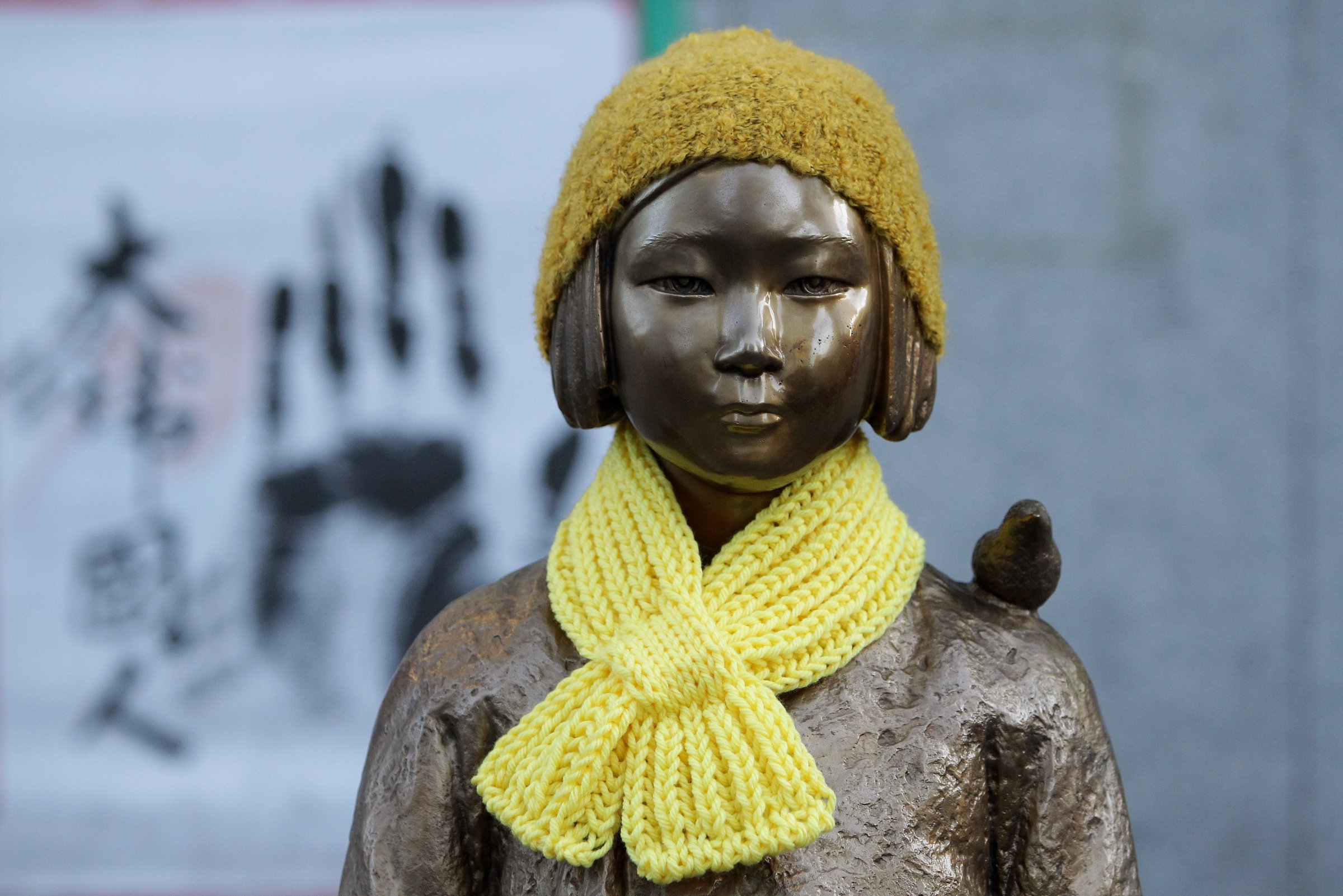
What wonderful news it is that South Korea and Japan have finally reached a formal deal over “comfort women,” those forced into Japanese military brothels during World War II. Japan offered an apology and a $8.3 million aid fund for the former sex slaves.
My mother, a Dutch woman, Jan Ruff O’Herne, was a former “comfort woman” in Java in 1944. When the Japanese invaded Java in 1942, my mother, who was living in Java with her Dutch colonial family, was interned in Ambarawa Prison Camp along with her mother and two younger sisters. When she was 21 years old, she was taken out and forced into sexual slavery for the Japanese military, where she was repeatedly beaten and raped.
According to historians, tens of thousands of women, including up to 300 Dutch women, were forced to work in Japanese military brothels. My mother, who is about to turn 93, and so many of the former “comfort women” have waited a long time for an official apology and compensation. My mother was shocked and insulted in 2007 when Prime Minister Shinzo Abe stated that enforced sexual slavery never happened and that the women were all volunteers.
My mother welcomes any agreement that might ease the pain and suffering of the “comfort women.” She is pleased that even the Abe government has acknowledged that the Japanese military was involved in creating the “comfort women” system and that the current government is aware of “responsibilities.”
I now wonder if the Japanese government will negotiate similar agreements with the victims of other countries. My mother has never received an apology, nor a letter, nor any funds “for recovering her honor and dignity and healing the psychological wounds.”
She says: “All of us deserve an apology and compensation. It is our right.”
More Must-Reads From TIME
- The 100 Most Influential People of 2024
- The Revolution of Yulia Navalnaya
- 6 Compliments That Land Every Time
- What's the Deal With the Bitcoin Halving?
- If You're Dating Right Now , You're Brave: Column
- The AI That Could Heal a Divided Internet
- Fallout Is a Brilliant Model for the Future of Video Game Adaptations
- Want Weekly Recs on What to Watch, Read, and More? Sign Up for Worth Your Time
Contact us at letters@time.com